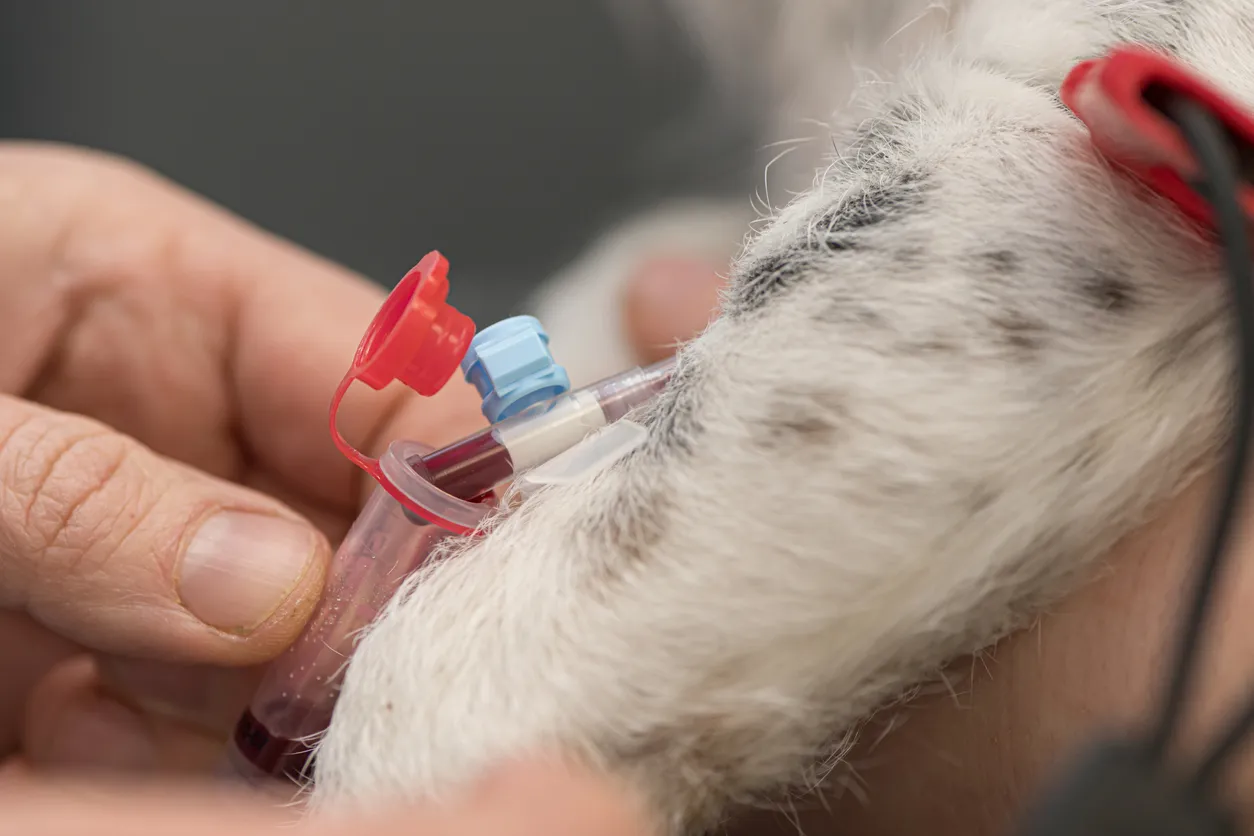For many dog owners, the well-being of their furry companions is a top priority. However, when faced with health challenges like heartworm disease, the associated costs can be a significant concern. The good news is that securing Cheap Heartworm Medicine For Dogs is possible, ensuring your pet receives the vital care they need without breaking the bank. Understanding the disease, its prevention, and affordable treatment options is crucial for every pet parent.
Organizations worldwide, such as the American Heartworm Society (AHS), advocate for accessible and low-cost heartworm treatment. This commitment helps guarantee that all pets, regardless of their owners’ financial situation, can access life-saving care, which in turn helps prevent the widespread transmission of the disease within the community. Life-saving heartworm treatment can be expensive, but proactive prevention and knowledge of affordable resources can make a profound difference. This guide will explore why heartworm care can be costly and how you can find hope through various initiatives dedicated to providing animal welfare services.
Understanding Heartworm Disease: Origins and Impact
Heartworm disease is a severe and potentially fatal condition caused by parasitic worms that reside in the heart, lungs, and associated blood vessels of affected animals. Dogs are particularly susceptible, though cats and other mammals can also be infected. The larvae, known as microfilariae, are transmitted through the bite of an infected mosquito. Once these larvae enter a dog’s bloodstream, they mature and reproduce, eventually growing into adult worms that can reach up to 12 inches in length. These adult worms cause significant damage to the heart and pulmonary arteries, leading to serious health complications over time. A pet can harbor these parasites for several years before any symptoms become apparent, making early detection and prevention critical.
What Are the Symptoms of Heartworm Disease?
In the early stages, heartworm disease often presents no obvious external symptoms, which can make it challenging for owners to detect. However, as the disease progresses and the worm burden increases, it begins to inflict severe damage on internal organs, particularly the heart and lungs.
Common noticeable symptoms that may indicate a progressing heartworm infection include:
- Persistent Coughing: This is often one of the first signs, especially during or after exercise.
- Difficulty Breathing: Dogs may show increased respiratory effort or panting even at rest.
- Fatigue or Lethargy: Reduced stamina and a general lack of energy are common.
- Loss of Appetite: A decrease in food intake can lead to weight loss.
In its advanced stages, heartworm disease can lead to heart failure and, ultimately, death if left untreated. Given the insidious nature of this disease, early detection and prompt treatment are paramount. Many clinics offer affordable heartworm testing, which is the first step in protecting your pet.
How Do You Diagnose a Heartworm Infection?
If you suspect your pet may have heartworm, or if they have not been on regular prevention, it is crucial to get them tested. Early detection and treatment can help prevent serious complications from heartworm disease. Understanding the diagnostic process is key to ensuring your dog’s health.
A veterinarian can perform a simple test that confirms the presence of heartworm larvae or adult worms in your pet’s system. This process is generally straightforward and vital for timely intervention.
Heartworm Testing
The most common and effective method for diagnosing heartworm disease is through a blood test. This basic blood test specifically looks for antigens, which are proteins produced by mature female heartworms. It’s important to note that it can take up to six months after the last potential exposure for the parasites to mature sufficiently for detection. Therefore, veterinarians typically recommend testing your pet approximately six months after any suspected exposure.
If the initial blood test yields a positive result, additional diagnostic steps are often recommended to determine the severity of the infection. These might include X-rays to assess the heart and lungs for any damage, and sometimes an ultrasound. These follow-up tests help the veterinarian tailor the most appropriate treatment plan for your dog. For general well-being and to catch other potential issues early, considering regular check-ups that might also involve looking into home remedies for dogs for minor ailments can complement a robust preventative care routine.
 A dog calmly lies while a veterinarian draws a blood sample, illustrating heartworm testing.
A dog calmly lies while a veterinarian draws a blood sample, illustrating heartworm testing.
What Are the Stages of Heartworm Disease?
Heartworm disease progresses through four distinct stages, each varying in severity and impact on your dog’s health:
- Stage 1 (Mild): At this initial stage, dogs may exhibit no symptoms at all, or only very mild signs such as an occasional cough. The heartworm burden is usually low, and the overall health impact is minimal.
- Stage 2 (Moderate): Owners might start noticing more apparent symptoms, such as coughing, especially during physical activity. Dogs may also show some fatigue after exercise. At this point, it’s still easy for owners to attribute these signs to normal activity or aging, potentially overlooking the underlying issue.
- Stage 3 (Severe): This stage is characterized by a significant increase in symptom severity. Coughing becomes more persistent, even at rest, and dogs will exhibit low physical activity levels, intolerance to exercise, and obvious difficulty breathing. Damage to the heart and lungs is considerable.
- Stage 4 (Caval Syndrome): This is the most critical and life-threatening stage. It involves serious complications such as heart failure, liver failure, and the accumulation of fluid in the abdomen (ascites). The heartworms may obstruct the flow of blood from the heart to the lungs, requiring emergency surgical removal of the worms.
If your pet tests positive for heartworm disease, your veterinarian will work closely with you to determine the most effective course of treatment based on the stage of the disease. While treatment is available, it can be costly, making prevention the most affordable and humane option for all families, regardless of their financial circumstances.
Preventative Measures Against Heartworm: The Best Investment
One of the most effective, and certainly the least expensive, ways to combat heartworm disease is through consistent preventative medication. These medications specifically target the immature heartworm larvae, killing them before they can mature into adult worms that cause severe damage. Various forms of these preventatives are available, including monthly tablets, topical solutions, and long-acting injections, making it easier to find an option that suits your dog’s needs and your lifestyle.
Monthly preventatives are remarkably effective, boasting over 99% efficacy when administered correctly. A typical six-month supply of these life-saving medications can cost between $30 to $70, depending on the brand and your dog’s weight. This small recurring investment is a powerful safeguard against the significantly higher costs and risks associated with treating an established infection. Opting for cheap heartworm medicine for dogs in the form of preventatives is a proactive step that protects both your pet’s health and your wallet.
Lifestyle Adjustments for Prevention
In addition to reliable heartworm preventative medication, certain lifestyle adjustments can significantly reduce your pet’s risk of exposure to heartworm disease. This is particularly relevant in regions where mosquitoes are prevalent year-round. These additional steps create an extra layer of protection for your dog.
What you can do:
- Eliminate Standing Water: Mosquitoes breed in stagnant water. Regularly empty and clean birdbaths, kiddie pools, and other containers that collect water in your yard. This reduces the mosquito population around your home.
- Utilize Pet-Safe Mosquito Repellents: Explore various mosquito repellent products specifically designed for pets. These can offer an additional protective barrier, especially when your dog spends time outdoors. Always consult your veterinarian before using any new product to ensure it’s safe and appropriate for your pet.
- Schedule Regular Veterinary Check-ups: Consistent visits to your veterinarian or a low-cost clinic are essential. These appointments allow for monitoring your pet’s overall health, regular heartworm testing, and ensuring they remain on an appropriate preventative regimen. Regular check-ups are also an excellent opportunity to discuss any concerns, like a sudden increase in dog sneezing remedy needs, which might indicate other underlying issues.
By combining consistent preventative medication with these practical lifestyle adjustments, you can significantly reduce the risk of heartworm disease in your pet, thereby safeguarding their continuous health and well-being. This comprehensive approach is the most effective strategy for preventing this serious condition.
The Heartworm Treatment Process: What to Expect
If, despite preventative efforts, you find yourself dealing with a heartworm-positive dog, swift action is crucial. Time is of the essence in managing the disease and preventing further complications. It’s important to note a critical distinction: true heartworm treatment is currently only possible for dogs. To date, there is no veterinary-approved medication to eliminate heartworms in cats; only supportive care is available for feline patients.
Treatment Steps
Fair warning to all pet owners: heartworm treatment is demanding on a dog’s body and requires careful management. The adult heartworms and larvae within a dog’s system must be systematically targeted to ensure effective elimination. The aggressiveness of a treatment plan may vary slightly depending on the stage of infection your pet is in and their overall health.
A typical heartworm treatment protocol, which usually does not involve surgery, generally follows these steps:
- Initial Larvae Elimination (Month 1): The first step often involves administering a dose of medication like ivermectin or a similar compound. This begins the process of killing off the heartworm larvae (microfilariae) circulating in the bloodstream.
- Antibiotic Regimen (28 Days): Following the initial dose, a 28-day course of an antibiotic, most commonly doxycycline, is prescribed. This antibiotic helps to combat bacteria (Wolbachia) that live symbiotically within the heartworms. Eliminating these bacteria weakens the worms and enhances the efficacy of the subsequent adulticide treatment.
- Adult Worm Elimination (Days 60, 90, and 91): The core of the treatment involves targeting the adult heartworms with melarsomine. This is an arsenic-based compound injected directly into the dog’s lumbar muscles. The standard protocol involves injections on days 60, 90, and 91. A two-dose protocol is also an option if a three-step treatment isn’t feasible, though the three-dose method is generally preferred for effectiveness.
These melarsomine injections are the toughest part of the treatment due to the arsenic base, which effectively kills the heartworms. Dogs must be carefully monitored by veterinarians during and after this process. Additionally, while your dog is undergoing treatment, it is absolutely vital to severely restrict their movement and general exercise.
This is most easily achieved by:
- Leash Walks Only: When your dog needs to go outside for bathroom breaks, they must be walked on a leash and kept calm. No running, jumping, or strenuous activity.
- Crate Rest: When not on a leash walk, the pet should be crated or confined to a small, quiet space where they cannot engage in excessive physical activity.
Too much physical activity during the melarsomine treatment period can lead to serious and potentially fatal complications, which will be discussed next. Adherence to strict rest protocols is a non-negotiable part of successful heartworm treatment.
 A dog calmly rests inside a kennel, demonstrating the importance of restricted movement during heartworm treatment.
A dog calmly rests inside a kennel, demonstrating the importance of restricted movement during heartworm treatment.
Potential Complications and Side Effects
While every pet owner hopes for a smooth recovery, it’s crucial to be aware of the potential serious complications and side effects that can arise during heartworm treatment. Being informed allows for prompt recognition and veterinary intervention.
Common complications include:
- Localized Injection-Site Reactions: These typically manifest as pain, swelling, or tenderness at the site of the melarsomine injection. There is also a risk of sterile abscesses developing.
- Pulmonary Thromboembolism (PTE): This is a severe and potentially fatal complication. The sudden death of a large number of heartworms can cause fragments to travel to the lungs, leading to blockages in the pulmonary arteries. Symptoms can include sudden difficulty breathing, coughing, or collapse.
- Persistent Coughing: It is common for dogs to experience a noticeable cough for seven to eight weeks following the injections. This is the body’s response to the presence of dead worms in the lungs.
- Severe Systemic Reactions: Difficulty breathing, profound lethargy, or collapse are severe side effects that may indicate a significant intolerance or adverse reaction to the medications being administered.
- Sudden Death: This tragic outcome, though rare, can occur. Increased physical activity during treatment can lead to a rapid increase in dead worm fragments moving into the lungs’ blood vessels, potentially causing fatal blockages.
Many of these serious side effects, such as Pulmonary Thromboembolism, are significantly reduced by strictly restricting exercise and physical activity during the entire treatment period.
Other helpful practices to minimize the possibility of severe side effects and support recovery include:
- Dietary Management: For overweight pets, a veterinarian-recommended diet to achieve healthy weight loss can alleviate added pressure on the heart and lungs during recovery.
- Pain Management and Anti-inflammatories: Your vet may prescribe pain medication or steroids to help alleviate discomfort, swelling, and inflammation associated with the injections and the body’s reaction to dying worms.
- Immune Support Supplements: Natural supplements, recommended by a veterinarian, can sometimes be used to help boost the dog’s immune system and aid in recovery.
- Hydration: Ensuring your dog has constant access to fresh water is vital for overall health and recovery.
- Comfortable and Calm Environment: Provide a comfortable, quiet place for your dog to rest and recover, minimizing stress.
- Gentle Massage: Soft, gentle massages can sometimes ease muscle discomfort in limbs, but always discuss this with your vet first.
While no treatment can guarantee 100% effectiveness or be completely without risk, success stories are far more common than failures. The benefits of successfully treating heartworm disease usually far outweigh the risks associated with the treatment itself. The goal is to return your pet to a healthy, active life, making the investment in cheap heartworm medicine for dogs for treatment a worthwhile endeavor.
Follow-up and Retesting
After the intensive initial heartworm treatment, a crucial step involves retesting dogs to confirm that all heartworms have been successfully eliminated from their system. This typically occurs several months after the final melarsomine injection. If the follow-up test yields a negative result, indicating the absence of heartworms, it is absolutely vital to immediately place your dog on a regular heartworm preventative program.
It’s critical for owners to understand that surviving heartworm disease does not confer immunity to future infestations. A dog that has been successfully treated will be just as susceptible to new infections as any other pet not taking preventative medication. Therefore, lifelong prevention is key to maintaining their health.
It is also important to maintain regular follow-up appointments with your veterinarian. These ongoing visits ensure your pet remains healthy and allow the vet to monitor for any long-term effects of the disease or treatment. They may recommend additional testing or adjustments to the preventative regimen if necessary.
Successfully treating a pet for heartworm disease requires time, patience, and diligent adherence to veterinary instructions. However, with proper care and commitment, it is entirely possible to eliminate the parasites and help your beloved companion return to their happy, playful selves.
 A smiling veterinarian gently holds a happy dog, representing successful treatment and ongoing care.
A smiling veterinarian gently holds a happy dog, representing successful treatment and ongoing care.
Low Cost Heartworm Treatment Options
Finding cheap heartworm medicine for dogs and affordable treatment options is a critical concern for many pet owners. Compassionate veterinary professionals are dedicated to helping families keep their pets healthy, recognizing that financial constraints should not be a barrier to life-saving care.
Heartworm is a serious and potentially life-threatening condition. The focus is on making treatment accessible to all pet owners, regardless of their financial situation. Many clinics and organizations offer a variety of other low-cost veterinary services and pet welfare assistance. These often include:
- Spay and neuter operations
- TNR (Trap-Neuter-Return) programs for community cats
- Drive-thru vaccine clinics
- Heartworm testing
- Pet food banks
- Microchip services
- Pet adoptions
- General preventative care and wellness exams
Whether your pet requires treatment for an existing heartworm infection or you’re seeking a sustainable way to implement a regular preventative regimen, resources are available to help. Remember, delaying treatment due to cost concerns can lead to far more serious health complications and higher expenses in the long run. If you are struggling to afford heartworm treatment or preventative care, do not hesitate to reach out to local animal welfare organizations or clinics that specialize in affordable services. Taking action promptly is the best way to safeguard your dog’s health.
